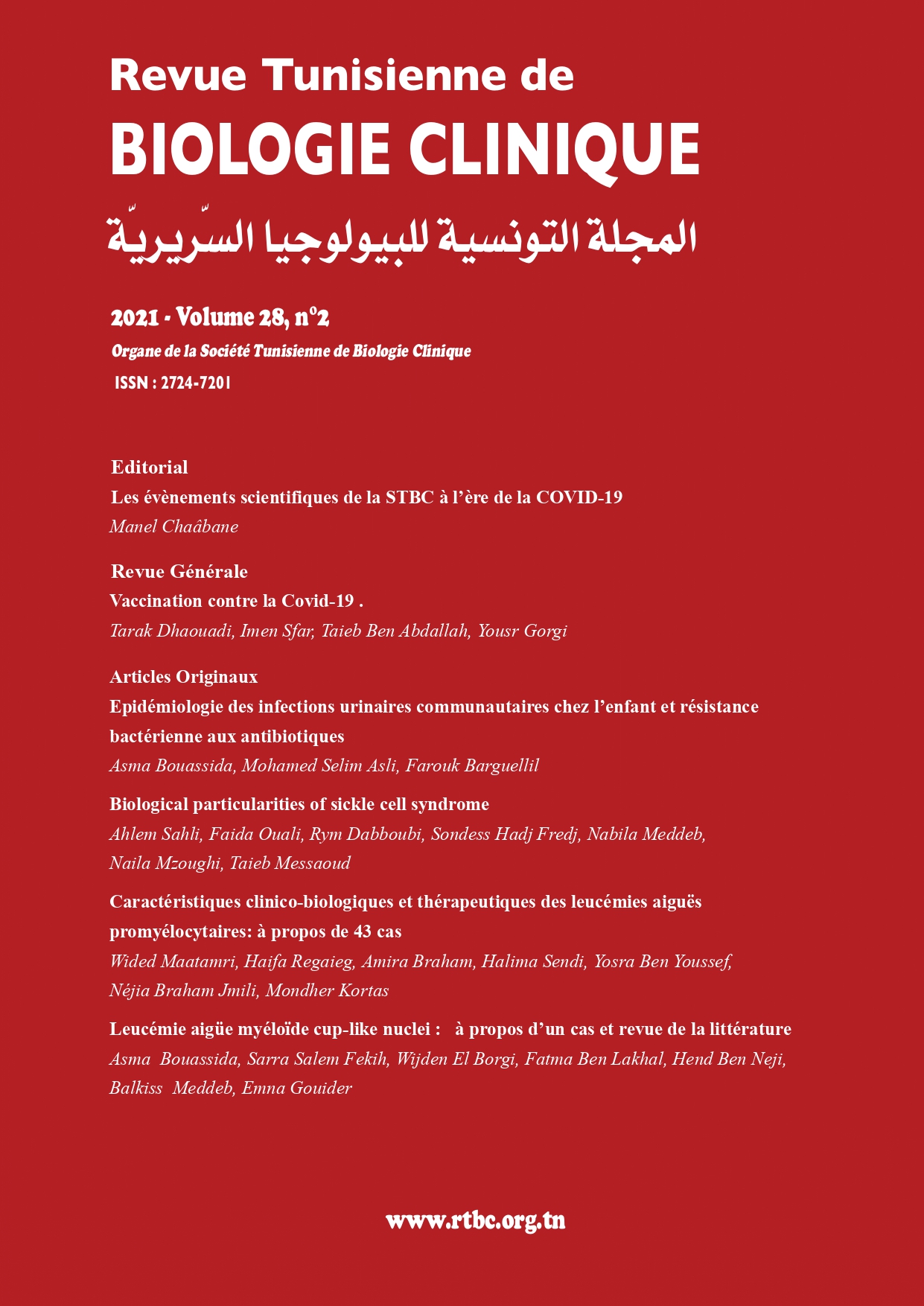Abstract
Introduction: Urinary tract infection is a common reason for pediatric consultation and a major health problem because of its consequences on kidney function. The objective of this work is to study the epidemiology of urinary tract infections and resistance of the incriminated germs to antibiotics. Material and methods: This is a retro-prospective study conducted during a year from June 1, 2017 to May 31, 2018 for patients hospitalized in the pediatric ward of the main military training hospital in Tunis for treatment of a community urinary tract infection. Results: Our study included 84 patients with a sex ratio of 0.52 and an average age of 3 years. Enterobacteria were isolated in 100% of cases with a predominance of Escherichia coli (70.2%) followed by Klebsiella pneumoniae (16.7%) and Proteus mirabilis (7.1%). Eleven strains produced an extended spectrum beta lactamase (13.1%). Escherichia coli was amoxicillin resistant in 82% of cases, amoxicillin-clavulanic acid in 38%, third generation cephalosporin in 21% and amikacin in 5%. All strains were sensitive to carbapenems. Conclusion: Faced with the emergence of resistant bacterial strains wich leads to a restriction of therapeutic regimens, it is essential to rationalize the use of antibiotics and to set up a system for monitoring bacterial resistance.

This work is licensed under a Creative Commons Attribution 4.0 International License.
Copyright (c) 2021 Revue Tunisienne de BIOLOGIE CLINIQUE

